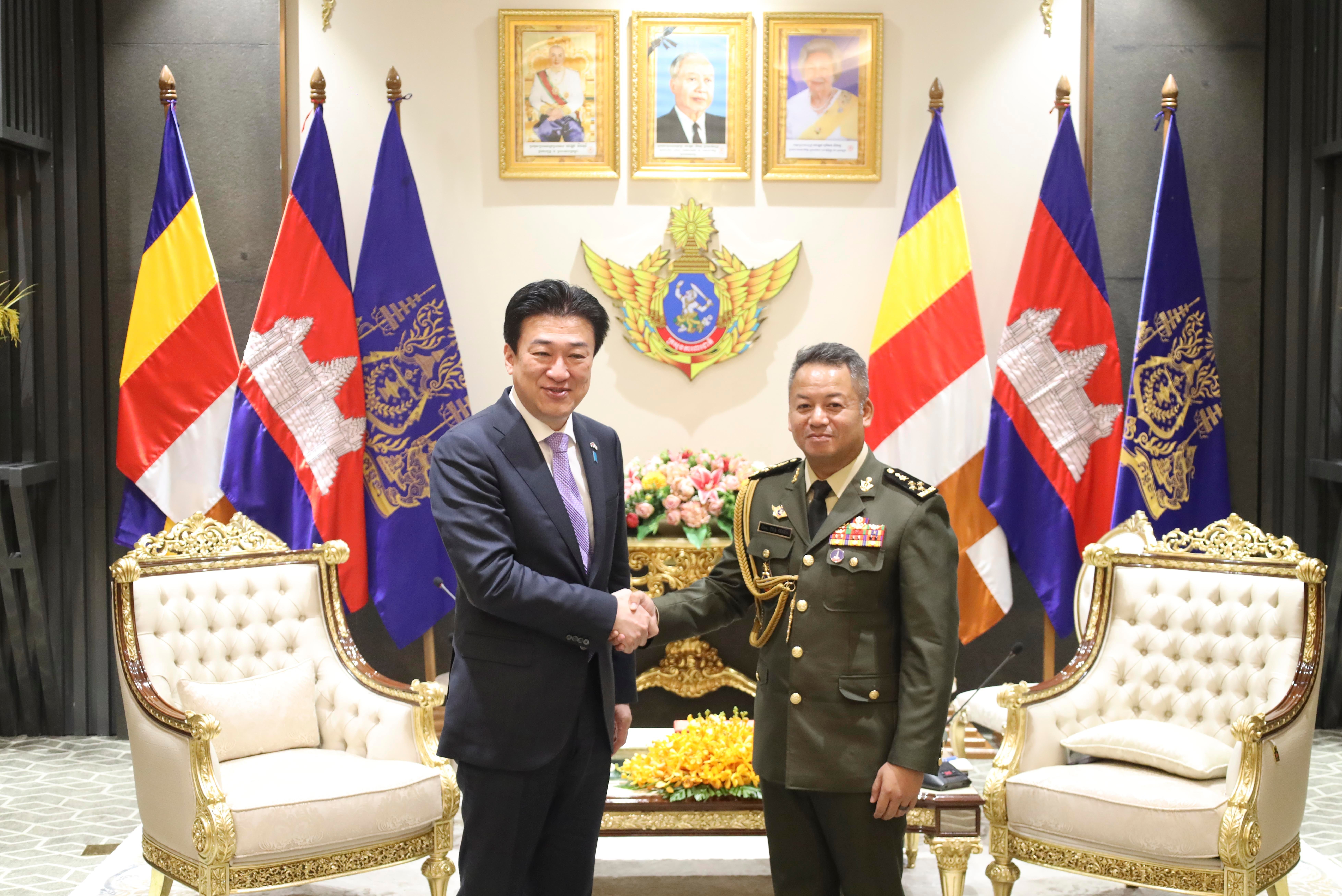Japan's defense minister begins visits to Cambodia and Vietnam, both under Beijing's shadow
Japan’s defense minister has held talks with senior officials in Cambodia, a top ally of China, as he begins a Southeast Asian trip that will also take him to Vietnam, whose relations with Beijing are complicated by maritime disputes

Your support helps us to tell the story
From reproductive rights to climate change to Big Tech, The Independent is on the ground when the story is developing. Whether it's investigating the financials of Elon Musk's pro-Trump PAC or producing our latest documentary, 'The A Word', which shines a light on the American women fighting for reproductive rights, we know how important it is to parse out the facts from the messaging.
At such a critical moment in US history, we need reporters on the ground. Your donation allows us to keep sending journalists to speak to both sides of the story.
The Independent is trusted by Americans across the entire political spectrum. And unlike many other quality news outlets, we choose not to lock Americans out of our reporting and analysis with paywalls. We believe quality journalism should be available to everyone, paid for by those who can afford it.
Your support makes all the difference.Japan’s defense minister held talks with senior officials in Cambodia, a top ally of China, on Monday as he began a Southeast Asian trip that will also take him to Vietnam, whose relations with Beijing are complicated by maritime disputes.
Japan has historically maintained warm relations with Cambodia, but its influence is minor compared to that of China, Tokyo’s biggest geopolitical rival in Asia, with growing influence throughout Southeast Asia. Tokyo is disturbed by China’s aggressive maritime activity, as are several Southeast Asian nations, and seeks to counter Beijing's diplomatic and economic outreach.
Defense Minister Minoru Kihara held talks with his Cambodian counterpart, Tea Seiha, as well as with Prime Minister Hun Manet and former Prime Minister Hun Sen, who is now president of the Senate, Defense Ministry spokesperson Gen. Chhum Sochet said on his Facebook page.
He said the two defense ministers vowed to promote cooperation. especially in human resources and exchanges of personnel visits, as spelled out in a 2013 memorandum of understanding.
A separate Defense Ministry statement said the two sides agreed to hold a joint military training course covering disaster rescue operations and to exchange military attachés.
Kihara told reporters before his trip that Japan has been stepping up defense ties with Cambodia and Vietnam in recent years and that he hopes to deepen cooperation.
“Southeast Asian countries are in strategically important areas that are part of Japan’s crucial sea lanes,” Kihara said.
He said Japan has elevated its relations with both Cambodia and Vietnam to the level of comprehensive and strategic partnership.
Kihara said he hoped to share his “understanding of the strategic environment” in the region and reinforce defense and security cooperation with Cambodia and Vietnam.
Kihara's visit coincided with Cambodia’s breaking ground on Monday on a controversial China-backed canal linking the capital, Phnom Penh, with the sea, despite environmental concerns and the risk of straining ties with neighboring Vietnam.
The $1.7 billion, 180-kilometer (110-mile) Funan Techo canal is to connect Phnom Penh with Kep province on Cambodia’s southern coast, giving it access to the Gulf of Thailand. Cambodia hopes the 100-meter (328-foot) -wide, 5.4-meter (17-foot) -deep canal will lower the cost of shipping goods to the country’s sole deepwater port, Sihanoukville, and reduce reliance on Vietnamese ports.
China has gained outsize political and economic influence in Cambodia through aid and investment in major infrastructure projects.
Cambodia is a key regional diplomatic partner for Beijing, helping dampen criticism within the 10-member Association of Southeast Asian Nations, several of whose members are engaged in territorial disputes with China in the South China Sea.
In June 2022, China helped Cambodia break ground on a naval port expansion project that has raised concerns from the U.S. and others that it could give Beijing a strategically important military outpost on the Gulf of Thailand. Cambodian officials deny China will have any special basing privileges and say their country maintains a neutral defense posture.